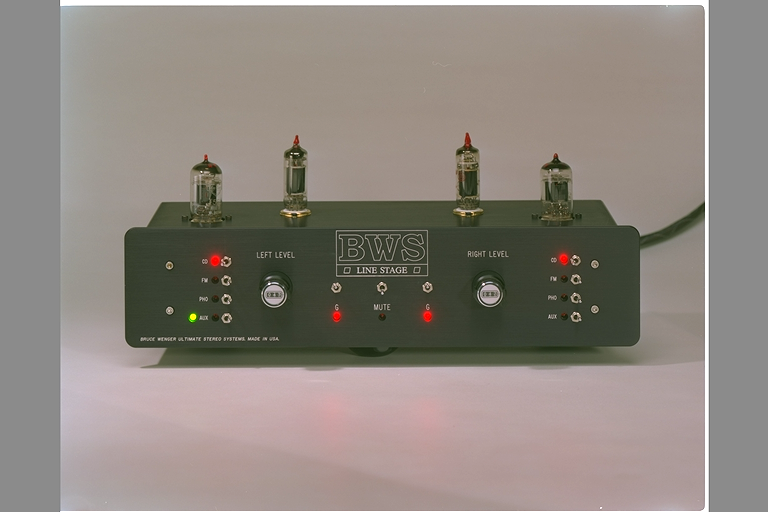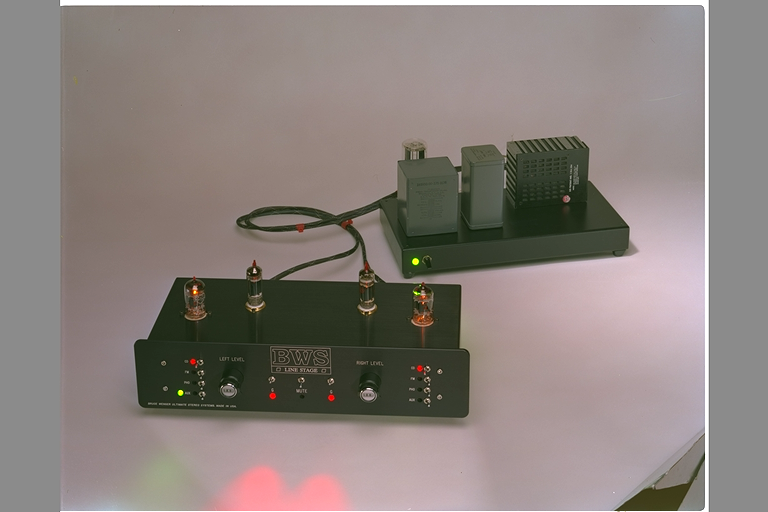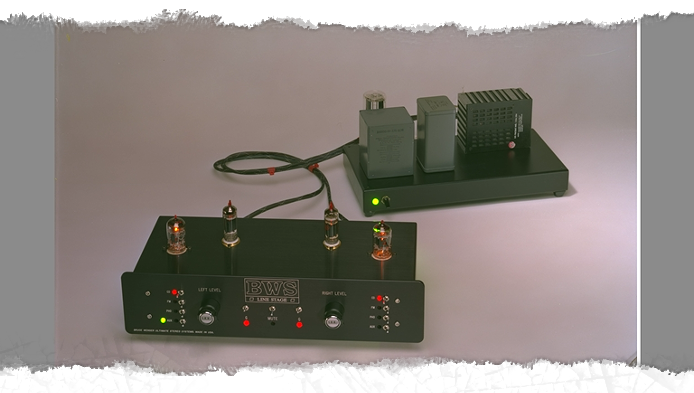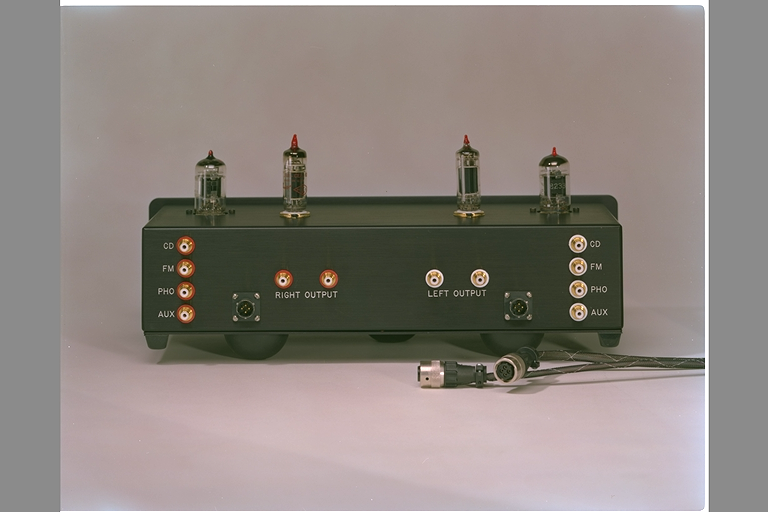
THE BWS DUAL MONO ULTIMATE PERFORMANCE LINE STAGE PREAMPLIFIER
I began designing preamplifiers in the
1970s, and my goal was to craft designs that created minimal
degradation of the source signal regardless of their switching,
amplifying, or buffering duties. I was strictly into creating
high-end audiophile phono preamplifiers, and after 10 years I had
developed two very successful designs. At that point in time, I had
no interest in digital audio and was still only using analog sources.
My curiosity and thinking were piqued
however in the early 1990s when I noticed that many designers were
attempting to achieve good sound from CD players by running them
through spatially colored and warmly voiced vacuum-tube
preamplifiers. When I listened at audio shows, I was convinced that
many of those preamplifiers were unable to track the highly dynamic
signal coming from the system’s CD player. I believed that the
preamplifiers were degrading the sound by adding harmonic distortions
to the source signal.
Up until the introduction of the CD player,
everybody had been designing preamplifiers that processed signals
produced by analog record players. Designers were now dealing with a
new type of animal, and it was clear to me that CD players posed
quite different challenges. One could not tame the sound by slowing
it down with tricks like adding time and phase distortions. I was
now starting to get interested in CD reproduction, and I knew my
direction: develop an optimal preamplifier for CD reproduction.
At this point I had been designing and
re-engineering preamplifiers for 15 years, and I had developed
excellent phono preamplifiers with low noise and low distortion. So,
for the first tests, I listened to a player that I was modifying
through the line section of my best phono preamplifier. The sound
was too strident and sharp because the I had too much signal level to
deal with, and because the audio signal was being processed by so
many solid state devices. Since the innate transparency of the
preamplifier was showing the inconsistencies in my CD player, I went
to work designing a preamplifier that could track the extended
dynamic range of the CD signal and handle its high voltage levels,
while at the same time adding body to the sound, making it more
palpable.
The result: I created a low-gain vacuum
tube preamplifier that incorporates very high speed vacuum tubes with
ultra low-distortion signal input pads. The preamp is designed to
create body in the sound presentation by tailoring the audio signal
at its frequency extremes. When this is carefully done, it doesn’t
audibly distort the sound.
The BWS line stage is that creation. The
design is executed with minimal point-to-point internal wiring,
isolated contact switching, and separate left and right audio
circuits. In addition, the design uses matched pairs of instrument
grade 10-turn volume potentiometers, to maximize channel separation
and achieve perfect channel balance.
Besides these audio layout features, the
design uses exotic parts such as RCA jacks made of gold plated
oxygen-free copper, Teflon jacketed wire, and silver plated contact
switches, all of which are cryogenically treated.
The tubes I chose for the design, are the
Amperex 8233, and Bendix 6900 or 6094, which are scientifically
treated and tested prior to installation.
The unit shown here, uses a state-of-the-art
tube rectified outboard power supply, which provides both channels
with filtered, isolated, direct current. My power supply design
achieves low background noise and extremely high resolution sound,
but this is the most basic supply I use. For ultimate performance I
do offer several levels of custom designed tube regulated DC supplies
and regulated dual-filament supplies.
Pricing for the unit shown starts at
$6800.00




